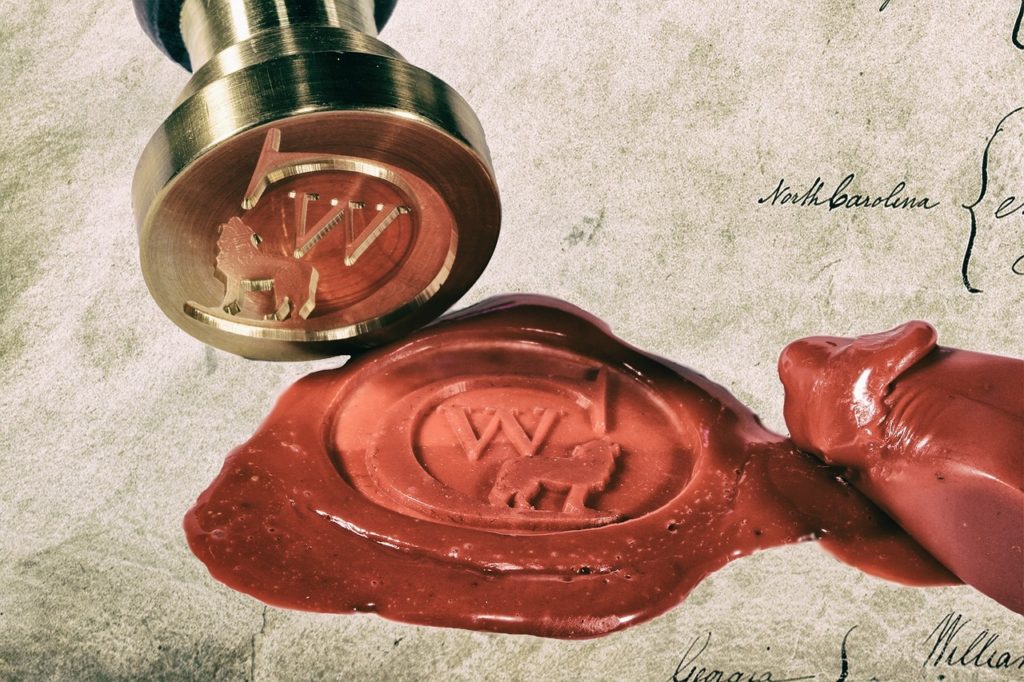It is nearly always a good idea to have your Chinese counter-party “chop” or “seal” your China contracts with their official China company chop.
There are many types of company chops. Which one should be used? How do you know if the company chop is real? What does a real China company chop look like? What does Chinese law require of a China company chop? What are some examples of fake company chops?
An official Chinese company chop on a contract says the Chinese company itself authorized the contract. This means the Chinese company cannot later claim that whoever signed the contract was not authorized by the company to do so.
The rules/requirements for Chinese company chops are different in every city, so there is oftentimes no way to know whether a company’s chop is a proper, legally registered, and authorized company chop just by looking at it. For this reason, the Chinese courts have decided that if the document is chopped with something that purports to be the company chop and if the signer of the document is either the legal representative of the Chinese company or a person with apparent authority to act on behalf of the Chinese company based on his or her business card the Chinese courts will usually not invalidate the contract based on a technical argument related to the validity of the company chop or the authority of the signer.
What this means in real life is that if you ever sue a Chinese company for breach of contract and the Chinese company tries to claim that the chop on your contract is not really theirs and its President (per his or her business card) did not have authority to sign on behalf of the company, it will almost certainly lose. Nonetheless, what this also means is that you will have one more litigation hurdle you must jump and on which you could conceivably fall. What if it is a mid-level manager who signs your contract and not the President? You prevailing on your breach of contract litigation now looks less certain.
The only way you can be virtually certain about the authenticity of a Chinese company chop is to do expensive and time consuming and difficult in-person due diligence. You can visit the head office of your Chinese counterparty and inspect the company chop there and then compare that company chop to the company chop used on previous contracts executed by the company and provided to you during your visit. For this sort of visit to be helpful, you need to be fluent in Chinese and know enough about Chinese law and business to be able to discern whether the older contracts you are being shown are real or not. As you can imagine, this sort of in-person due diligence is not ordinarily done, other than on huge transactions.
Better yet, you send a China attorney to confirm with the government that the company chop that will be used on your contract is actually the company’s real company chop. But this method too is usually reserved for only big transactions because because getting an attorney to run to the local Chinese government office is not going to be cheap or easy.
Our law firm’s China lawyers are occasionally engaged to do one or even both of the two company chop verifiers described above, but for verifying company chops for more typical China contracts we usually suggest foreign companies do the following:
Ask the Chinese party to provide you with the following four pieces of information:
1. The signatory’s title, in Chinese and in English
2. The signatory’s name in Chinese characters.
3. A scanned copy of the signatory’s business card, in Chinese and English [unless you already have a copy
4. A copy of the Chinese company’s business license
Armed with this, our China lawyers cannot guarantee the company chop is indeed authentic, but we can at that point let our clients know whether we are comfortable with the chop or not. By this point we have almost certainly already done basic due diligence on the Chinese company and we know it is a legitimate company, and so once we get the above information relevant to the company chop, it is the incredibly rare instance when we express discomfort.
The bottom line on China company chops is that so long as the company chop looks authentic and the person signing the contract or document has apparent authority to act on behalf of the Chinese company, that is all that is normally required. Due to the variations from district to district regarding Chinese company chops, on all but really large transactions, it will usually not make economic sense for you to do much more than this to get your experienced China lawyer (who must be fluent in Mandarin) the four pieces of information listed above and have them give the company chop a relatively quick perusal.
The big issue is whether you are dealing with a person in the Chinese company with authority to bind the company. Are you even dealing with the company and not some rogue employee or third party? Does the company even exist, using the name they have given you? Those are the real issues, and they require real work to resolve. ke.
However, legal documents in China are still generally required to be chopped in China so the basic best practices described above should be used for all your China contracts. See also The Chinese Company Chop Goes Digital.
Got it?

























